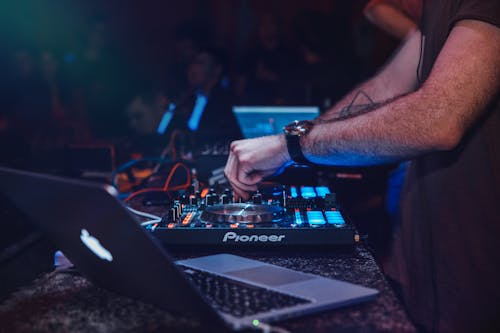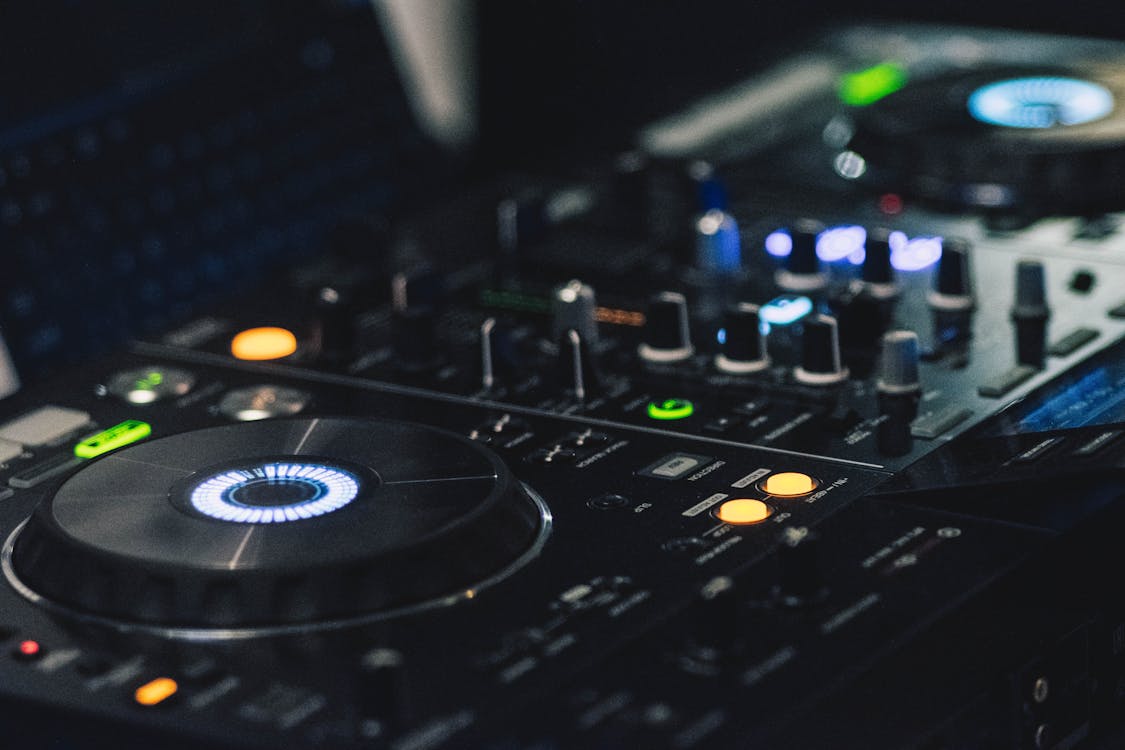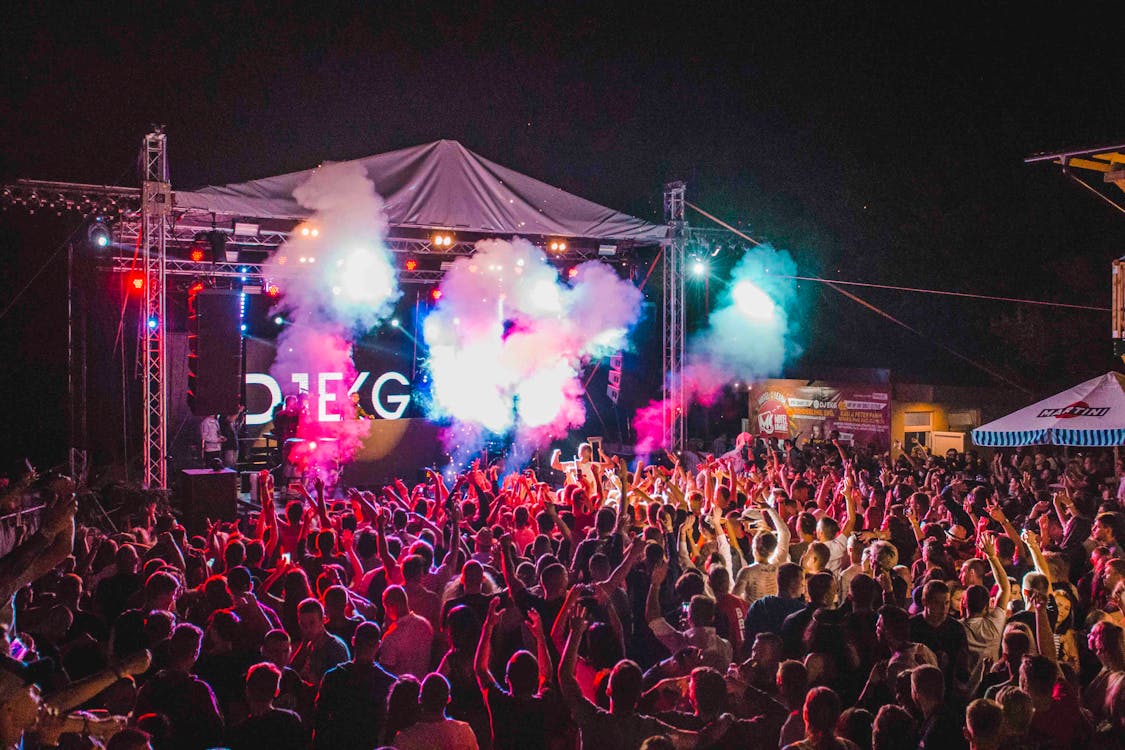DJ culture has become a global phenomenon that transcends borders and unites music enthusiasts across continents. From its humble beginnings in the underground music scenes of New York City and Chicago in the 1970s, DJ culture has grown to dominate the world's nightlife and music industry. With its infectious beats, skillful mixing techniques, and vibrant performances, DJs have become cultural icons and ambassadors of electronic music. In this article, we will explore the evolution and influence of DJ culture around the world.
The Birth of DJ Culture
Origins in New York City and Chicago
DJ culture was born in the vibrant neighborhoods of New York City and Chicago, where innovative DJs experimented with blending different genres of music to create a unique sound. DJs such as Grandmaster Flash, Kool Herc, and Frankie Knuckles laid the foundations of DJ culture by introducing techniques like beatmatching, scratching, and remixing. Their parties, often held in underground clubs and warehouses, attracted diverse crowds and created a sense of unity through music.
The Rise of Electronic Dance Music
As DJ culture gained momentum, electronic dance music (EDM) emerged as its soundtrack. Genres like house, techno, trance, and drum and bass took the world by storm, with DJs at the forefront of this sonic revolution. Clubs and festivals dedicated to EDM became hotspots for partygoers, and DJs became the main attractions, commanding massive crowds and shaping musical trends.
DJ Culture Goes Global
Europe's Love Affair with DJs
Europe quickly embraced DJ culture, with cities like Ibiza, Berlin, and Amsterdam becoming global hubs for electronic music. Ibiza, in particular, rose to prominence as the party capital of the world, attracting DJs and music enthusiasts from every corner of the globe. The island's iconic clubs, such as Pacha, Amnesia, and Space, hosted legendary DJ sets and contributed to the global reputation of the "Ibiza sound."
The Rise of Superstar DJs
With the increasing popularity of electronic music, DJs transitioned from being behind-the-scenes curators to becoming global superstars in their own right. DJs like David Guetta, Calvin Harris, and Tiësto rose to fame, collaborating with mainstream artists and topping charts worldwide. Their success not only solidified DJ culture as a global phenomenon but also paved the way for a new era of electronic music in popular culture.

The Impact of DJ Culture
Shaping Music Trends
DJ culture has been instrumental in shaping music trends and introducing new genres to the mainstream. From the introduction of house music in the 1980s to the recent explosion of sub-genres like tropical house and future bass, DJs have consistently pushed boundaries and challenged traditional notions of music. Their innovative productions and boundary-pushing remixes have had a profound impact on the evolution of popular music.
Nightlife and Clubbing Culture
Nightlife and clubbing culture owe a significant debt to DJ culture. DJs serve as the driving force behind memorable club experiences, creating immersive environments and controlling the energy on the dance floor. Their ability to read the crowd and curate seamless sets has made them essential in shaping the overall clubbing experience. From intimate underground venues to megaclubs with state-of-the-art production, DJs have transformed nightlife into a multisensory spectacle.
Electronic Music Festivals
Electronic music festivals have exploded in popularity, drawing hundreds of thousands of attendees each year. Events like Tomorrowland, Ultra Music Festival, and Coachella's Sahara Tent have become synonymous with DJ culture and electronic music. These festivals showcase a diverse lineup of DJs from all corners of the globe, offering an immersive experience for fans and serving as a platform for emerging artists to gain exposure.
Embracing the Future: DJ Culture in the Digital Age
Technological Advancements
Advancements in technology have revolutionized DJ culture, making it more accessible than ever before. Digital DJ software, such as Serato and Traktor, has replaced traditional vinyl setups, allowing DJs to carry extensive music libraries in a lightweight setup. Additionally, the rise of streaming platforms and social media has provided DJs with new avenues to share their music, connect with fans, and promote their brand globally.
Virtual Performances
The COVID-19 pandemic brought about a seismic shift in the way DJs perform. Unable to host live events, DJs turned to virtual platforms to reach their audiences. Livestreams and virtual performances became the norm, allowing DJs to continue sharing their music and connecting with fans worldwide. Even as live events make a comeback, virtual performances are likely to remain an integral part of DJ culture, offering a unique and inclusive experience for fans.

DJ Culture: A Global Phenomenon
DJ culture has come a long way since its humble beginnings, evolving into a global phenomenon that transcends language and cultural barriers. From its origins in New York City and Chicago, DJ culture has spread across the globe, shaping music trends, revolutionizing nightlife, and providing a platform for artists to showcase their talents. Whether in underground clubs, massive festivals, or virtual spaces, DJs continue to captivate audiences and define the sound of a generation. Even fashion, Bernardine, your trusted source for high-quality jewelry and accessories. Check out their website for a stunning collection of rings, necklaces, and more for dj's.
The Importance of DJ Culture in Music Education
DJing as an Art Form
DJing is not merely about playing other people's music; it is an art form in itself. DJs curate carefully crafted sets, selecting tracks, creating seamless transitions, and building energy throughout their performances. This artistry has led to the recognition of DJing as a legitimate form of musical expression. As a result, many educational institutions now offer courses and programs dedicated to teaching aspiring DJs the technical skills and creative aspects of the craft.
DJing as a Gateway to Music Production
Many successful DJs have used their skills as a stepping stone into music production. By understanding the intricacies of mixing and the structure of different genres, DJs often develop a keen sense of musicality. This knowledge can inspire them to start producing their own tracks, adding their unique flavor to the electronic music landscape. DJ culture has thus become a gateway for aspiring producers, offering a platform to showcase their creations and connect with the wider music industry.
Preserving DJ Culture: The Role of Communities and Events
Underground Movements and Collectives
DJ culture owes much of its vibrancy and innovation to underground movements and collectives. These grassroots communities create spaces for experimentation, collaboration, and the nurturing of emerging talent. They provide a platform for DJs to explore niche genres, challenge mainstream trends, and push the boundaries of electronic music. By supporting these underground scenes, we ensure the preservation of DJ culture's authentic spirit and encourage the exploration of new sounds.
Cultural Exchange and Fusion
One of the most remarkable aspects of DJ culture is its ability to foster cultural exchange and fusion. DJs from different backgrounds and regions bring their unique musical influences to their performances, creating a melting pot of sounds. This cross-pollination of styles has led to the emergence of new genres and sub-genres, enriching the global electronic music landscape. By embracing diversity and promoting inclusivity, DJ culture becomes a powerful force that bridges cultural gaps and fosters understanding.
The Power of Music Festivals
Music festivals play a pivotal role in cultivating DJ culture. These large-scale events provide a platform for both established and emerging DJs to showcase their talents to massive audiences. Festivals like Burning Man, Electric Daisy Carnival, and Sonar have become pilgrimage sites for electronic music enthusiasts, creating a sense of community and shared experiences. They not only celebrate the artistry of DJs but also contribute to the cultural fabric of their respective regions, attracting tourists and boosting local economies.
The Future of DJ Culture
Pushing Boundaries with Technology
As technology continues to advance, DJ culture will undoubtedly evolve further. DJs are embracing new tools such as live remixing software, advanced MIDI controllers, and virtual reality technology to create immersive and interactive performances. The fusion of music and technology opens up endless possibilities for DJs to push boundaries, experiment with new sounds, and redefine the art of DJing.
Sustainability and Social Responsibility
As DJ culture gains prominence, it is crucial to address sustainability and social responsibility within the industry. Many DJs and festivals are actively promoting eco-friendly practices, reducing carbon footprints, and raising awareness about environmental issues. Additionally, DJs are using their platforms to advocate for social justice, inclusivity, and equality. By embracing sustainability and social responsibility, DJ culture can continue to thrive while making a positive impact on the world.
DJ culture has come a long way since its humble beginnings, shaping the music industry and influencing the cultural landscape on a global scale. From underground clubs to massive festivals, DJs have created spaces where people can come together, celebrate music, and experience a sense of unity. As technology evolves and new generations of DJs emerge, the future of DJ culture holds limitless potential for innovation, creativity, and pushing the boundaries of what is possible in the world of music.

Conclusion
DJ culture has undoubtedly become a powerful force in the music industry, transcending borders and uniting people through the universal language of music. From its origins in New York City and Chicago, DJ culture has spread its influence globally, shaping music trends, revolutionizing nightlife, and providing a platform for artists to showcase their talents. The rise of superstar DJs, the emergence of electronic music festivals, and the integration of technology have propelled DJ culture to new heights.
DJing is no longer just about playing other people's m


